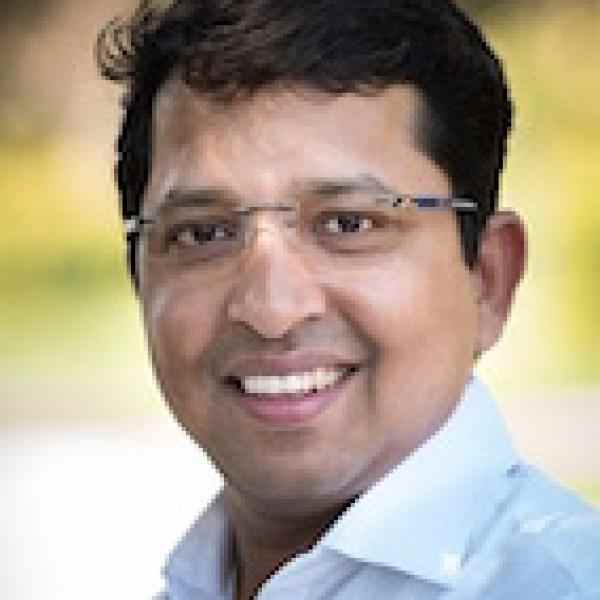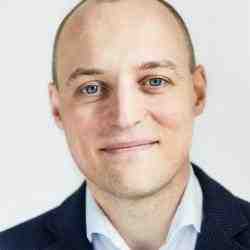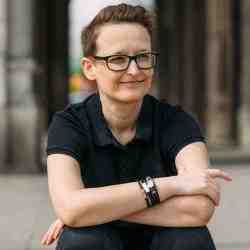Introduction
Realising that there will never be sufficient doctors to treat patients in India individually, Sujay is completely changing the healthcare system from an individualized curative model, to a community based preventive healthcare system to ensure holistic well being of communities. He is doing this through ICT for low-cost diagnosis and data analysis of a community’s health indicators, and implementing behavior change programs for the communities in partnership with academic institutions, locals NGOs and businesses.
L'idée nouvelle
Sujay Santra is changing the current healthcare paradigm of doctors merely treating illnesses, to one where doctors, local NGOs, local businesses and academia work together to identify endemic health issues in communities and design holistic disease prevention solutions, including sanitation, hygiene and nutritional components, that end the disease from its root cause.
Through his in-house developed low cost data analysis technology, deployed in the public health system, or through his own chain of low cost clinics in the remotest areas where there is no public health system, Sujay diagnoses the most common illnesses in communities. By closely shadowing the lives of the villagers and community immersion, Sujay’s team observes the ingestion habits, hygiene and sanitation practices and lifestyle of the community members, to identify the root causes of the endemic diseases in the communities. In addition, Sujay partners with existing organizations globally who have designed solutions for the root cause problems, adapts them to the rural Indian context and implements them in the community, in collaboration with local NGOs and businesses.
Using the evidence based evaluation metrics of improved health parameters of the communities through this model, Sujay is lobbying to change national health policies to make holistic healthcare solutions that treat the root cause of diseases, rather than just treat individual illnesses by medicine or surgery, the accepted paradigm of healthcare in India.
Le problème
Currently, India has 1 doctor for every 1,700 people in the population, a ratio that is far below the minimal ratio of 1:1,000 specified by the World Health Organization (WHO). India still needs over 5,00,000 doctors to attain this standard, a disparity which is rapidly growing as a direct result of population growth. More broadly, it is estimated that over 600 million people in India live with little or no access to healthcare (almost 5- percent of India’s population). Of these people, 50 percent are village residents living in rural areas with no access to healthcare with over 8 per cent Primary health care centers with no qualified medical staff. As a result, the morbidity rate in rural India has increased significantly over the past decade: reaching 70 per cent in 2011 against 64 per cent in 2004.
This is primarily caused by the most endemic/chronic non-communicable diseases (NCDs) in rural India, which include respiratory problems (COPD), cancer, cardiovascular problems, and diabetes. This is taking its toll on the Indian economy as well. A study by David Bloom and Elizabeth Cafiero, both of Harvard School of Public Health (HSPH) found that these diseases will cost India 126 trillion rupees (roughly 2.3 trillion U.S. dollars) from now through 2030—an amount that is 1.5 times India’s annual aggregate income.
The growing population combined with the growing threat of NCDs (which require constant treatment) means that it will be virtually impossible to train enough doctors and establish enough Public Health Centerss to attain the 1:1000 standard. Therefore, providing individual treatment to patients one-on-one is not going to the most strategic way forward for the healthcare sector. Instead, there needs to be a solution that addresses the diseases at the root cause, so we can prevent the disease from affecting whole communities.
La stratégie
Realising that it will never be possible to create enough doctors or even health clinics as required in the near future, wanted to empower community based healthworkers to provide primary healthcare to remote rural communities. Sujay designed the Wireless Health Incident Monitoring System (WHIMS) with an intuitive graphics user interface that rural health workers, with a college or high school education could use. For example, the WHIMS screen has a photograph is a complete human body from the front and the back, the health worker has to click on the part of the body the patient says the symptoms are in. If the health worker clicks on the head, WHIMS gives options of potential symptoms of the head, like ache, dizziness, seeing dark spots, and so on.
Sujay, then, realized that WHIMS needed to be accompanied by instruments to measure the vital statistics of patients, for it to be a more reliable diagnostic tool, so he created Medic Bags with low-cost portable instruments to measure these basic statistics and WHIMS loaded on a tablet, and trained an army of rural health workers, who are already employed by the Public Health System, in the remotest areas to diagnose patients. The patients pay an affordable Rs. 90 (US $ 1.5) for a consultation, half of which goes to the health worker as additional income, and the other half to iKure to sustain their operations.
In order to capitalize on the existing healthcare infrastructure, Sujay tied up with the Public Health Care (PHC) system and low cost private healthcare providers, under which the diagnostics collected by health workers are shared in real time with doctors in these hospitals, who suggest treatments and prescribe medication through the WHIMS platform to the health workers, who relay this information to the patients. As Sujay started scaling his work, he realized there are many remote areas which do not even have access to a PHC within a 20 kilometer radius, for him to link the health workers to doctors through. So, under the iKure umbrella Sujay started a chain of, currently 28, health clinics in these remote areas, employing his own medical staff and health workers.
As more and more diagnostics were being collected using the WHIMS platform, Sujay started noticing patterns in the data analytics, the most common prevalent diseases in every community clearly emerging, for example, low hemoglobin count in the women in certain communities showed a prevalence of anemia, whereas in other communities most patients had been diagnosed with muscle pains or certain skin disorders. Such data analytics had not been possible in the past because aggregated digitized data has not been collected in such volumes on the health status of communities.
Equipped with these data analytics, Sujay decided to evolve his health care model from just providing accessible and affordable healthcare, towards analyzing the root causes of the most common ailments in communities and addressing them holistically, through nutrition, hygiene and sanitation practices, rather than just treating patients individually by medicating them.
Currently, in 2015, Sujay enters communities, gathers and analyses diagnostic data on the community members, and starts by mapping the prevalent endemic diseases. The iKure team analyses the diagnostic data collected through WHIMS to identify the most common diseases and deficiencies in the community. The team then spends time in the community, learning about the lives of the people by living amongst them and shadowing them. They learn about their food and water sources, hygiene habits, sanitation practices and so on, to identify the root cause of the endemic diseases in the community. iKure then looks globally for existing solutions to the root cause, in academia and research or other health care models around the world, and knowledge partners with the Academic Institution or Health Care Organisation to adapt their model to the rural community iKure is working in.
Cognizant of the fact that as a health care specialist organization who are new entrants in the community, it would not be efficient for iKure to implement the holistic healthcare solution they have arrived at through their knowledge partners, Sujay partners with local NGOs and businesses, who already have relationships with the community to implement.
For example, in a rural district in West Bengal where most of the population are agriculture labourers, were seeking treatment for severe muscle pains. Under the traditional health care system they had been administered pain killers, steroid pills or injections. However, Sujay’s field team’s analysis through shadowing of patients’ lives in their communities revealed that the root cause of the muscle pains was a low protein diet. Sujay partnered with the University of Michigan, who had conducted monumental research in the field of low cost dietary supplements for protein-deficiency, and a local NGO working on agriculture and livelihoods to implement the University's model of changing cropping patterns in the community, and therefore their diet, to cure protein deficiency, and its symptom of muscle pains, from the root cause.
Realizing that health disorders in a community are closely linked to the socio-economic status of the communities, Sujay is now expanding the parameters of the data collected through WHIMS to include non-clinical factors as well. For example, iKure is screening 10,000 construction workers in the city of Kolkata, in partnership with 10 different construction companies, where, along with health vital statistics, iKure is also collecting data about wages, if the workers have health and accident insurance, bank accounts, State issued ID cards, and so on. iKure plans to lobby with the Labour Ministry using this data, for improved benefits for blue collar workers.
Sujay’s work has spread across four states in India, impacting the lives of 135,000 people, with 6 Indian and international Academic partners, hospital chain parnters with over 250 branches and more than 20 private company partners. By 2020 Sujay will scale to 300 clinics, which will allow him to develop a body of evidence based evaluation that substantiates that their holistic healthcare model that attacks the root cause of health problems in communities is the most effective health care paradigm. Sujay will then use this evidence to lobby for national policy to adopt their model. iKure is going to start sharing their data mapping with the National Rural Health Mission (NRHM), so that they can plan their health policy and schemes based on this data.
La personne
Sujay was born in rural West Bengal, and although his parents moved to the city, where he grew up and was educated, most of his family was still in the village and he visited often. The biggest difference that struck Sujay between his urban and rural home was the lack of good roads and transportation. As a child Sujay remembers thinking that the lack of channels for transportation was the root cause of all the problems faced by his rural family members. They had to travel for half a day to see a doctor, going to the market for the monthly supplies meant taking a whole day off of work, even to make a phone call they had to walk several miles.
Sujay’s childhood vision to bring connectivity to villages came back to him , when his father was diagnosed with heart disease. As their village had no specialized cardiologists, Sujay’s father was being treated by a General Physician and local village medical practitioners. When his health started deteriorating further, Sujay took him to a Cardiologist in Bangalore, where they were told that his father had been prescribed the wrong medication due to wrong diagnosis all along. As his father started recovering with the correct treatment, Sujay became more and more obsessed with tackling the challenge of lack of quality healthcare in rural India.




